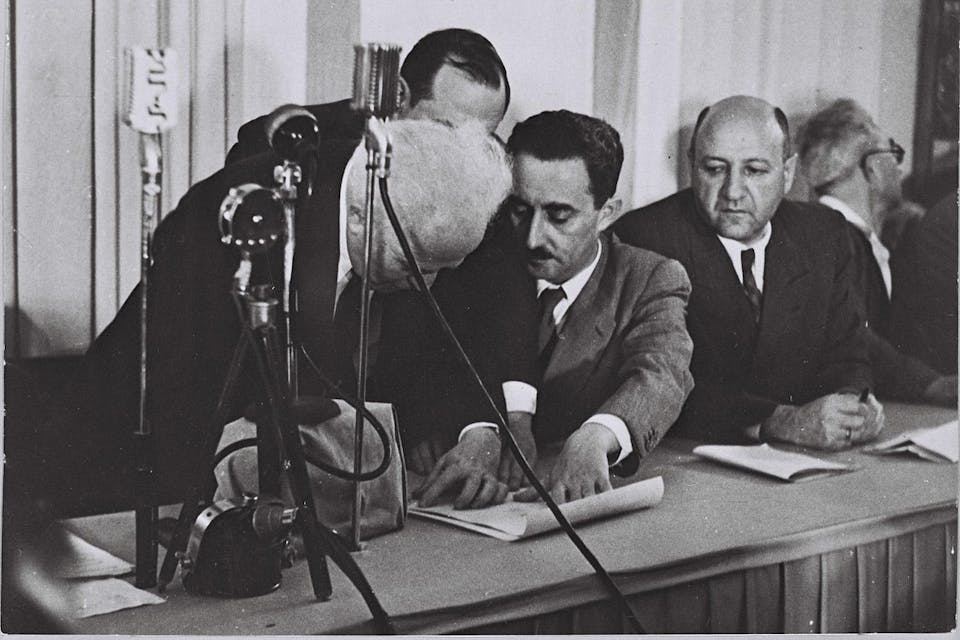
July 20, 2021
Did Israel’s Founders Declare a Secular State?
Going by the usual telling of the founding, religious and secular Jews clashed over whether Israel's declaration should evoke God's covenantal promise. How accurate is that account?
This is the fourth installment in the historian Martin Kramer’s series on how Israel’s declaration of independence came about, and what the text reveals about the country it brought into being. Previous installments can be seen here.—The Editors
If today’s Israelis know one thing about the debate surrounding their country’s declaration of independence, it can be summed up in two words: Tsur Yisrael, “the Rock of Israel.” The declaration ends with these words: “Placing our trust in the Rock of Israel, we affix our signatures to this proclamation.” The debate over the formula is famous because some of it took place in public—that is, at a meeting of the People’s Council on May 14 just hours before independence was declared.
The usual telling of the story goes like this: at the Council meeting, religious Jews clashed with secular Jews over whether to link their names to an explicit announcement of their trust in, specifically, God. The argument went back and forth until David Ben-Gurion proposed that everyone sign while placing trust not in God but in a substitute expression: Tsur Yisrael, “the Rock of Israel.”